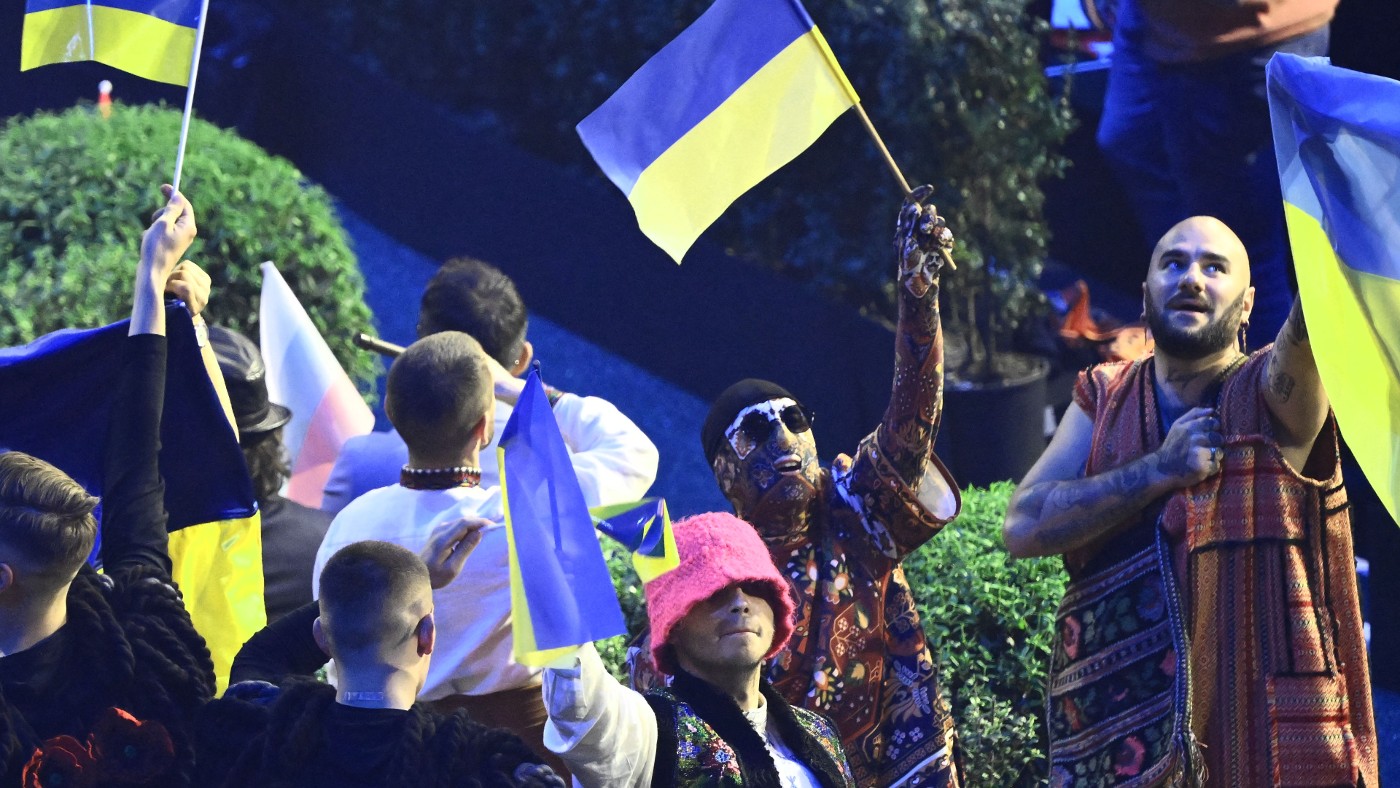How Eurovision will play out amid Ukraine war
Invaded nation’s act is favourite to win while Russia barred from taking part

A free daily email with the biggest news stories of the day – and the best features from TheWeek.com
You are now subscribed
Your newsletter sign-up was successful
Ukraine is being tipped to win this year’s Eurovision after giving its entrants special permission to leave the war-torn country to compete in the song contest.
The six members of folk-rap group Kalush Orchestra were “encouraged to travel” to the Italian city of Turin for the final on Saturday despite a specially introduced martial law that prevents men of military age from departing Ukraine, The Telegraph reported.
Morale booster
The Week
Escape your echo chamber. Get the facts behind the news, plus analysis from multiple perspectives.

Sign up for The Week's Free Newsletters
From our morning news briefing to a weekly Good News Newsletter, get the best of The Week delivered directly to your inbox.
From our morning news briefing to a weekly Good News Newsletter, get the best of The Week delivered directly to your inbox.
Ukraine is hoping for another Eurovision victory following two previous wins, in 2004 and 2016. This year’s song entry from the eastern European nation has what The Telegraph described as “terribly prescient” lyrics: “I’ll always find my way home, even if all roads are destroyed.”
If Ukraine wins, next year’s contest would, in theory at least, be held in Kyiv.
“For our country it is so important to have victories in all ways,” Kalush Orchestra founder member Oleh Psiuk told the BBC. “So if we win, it will be another opportunity to show Ukraine to the world, to remind people about Ukraine, and to increase morale in the whole country.”
Meanwhile, Timur Miroshnychenko – the nation’s presenter for Eurovision – commentated on last night’s semi-final from a bomb shelter, noted Metro.
A free daily email with the biggest news stories of the day – and the best features from TheWeek.com
Untenable Russia
Meanwhile, Russia has been banned from entering this year’s contest because organisers felt the nation’s presence could bring the competition into “disrepute” following the country’s invasion of Ukraine and “sully” an event designed to promote European unity and cultural exchange.
The i news site noted that the European Broadcasting Union (EBU) – which organises the contest – has previously tried to keep politics out of the experience, which means its decision to “uninvite Russia” is “arguably the closest it has come to making a political stand”.
Paul Jordan, a British Eurovision expert and pundit who once worked behind the scenes at the contest, said that threats of mass boycotts had made the EBU realise Russia’s position was “untenable”.
The UK’s year?
As for the UK, it will be hoping to improve on recent form: it received a score of zero last year and has come last five times in the last 20 years.
However, this year things could be different because Sam Ryder, who’s been picked by the management agency behind Ellie Goulding and Lana Del Rey, is being hotly tipped for success with his entry song Space Man.
Before being chosen to take part in Eurovision, Ryder had made a name for himself on TikTok by sharing covers of hit songs – along with his own original music – during lockdown, noted The Independent.